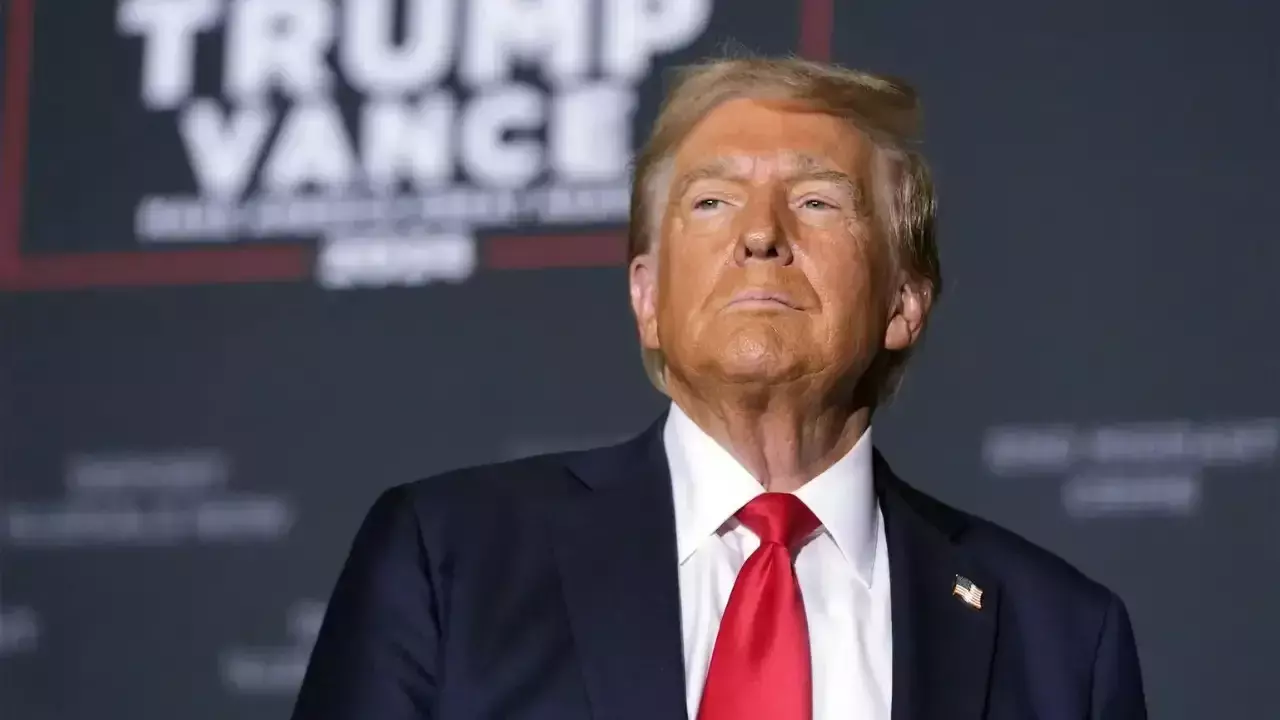TRENDING TAGS :
Trump Ousts National Security Adviser Waltz, Appoints Rubio as Interim Replacement
In a major shakeup, President Donald Trump has ousted National Security Adviser Mike Waltz, naming Secretary of State Marco Rubio as interim replacement.
Trump (PC- Social Media)
In a dramatic shakeup of his administration, President Donald Trump has removed Mike Waltz as White House National Security Adviser, replacing him on an interim basis with Secretary of State Marco Rubio. Trump announced that Waltz, a former Florida congressman and Green Beret, will be nominated as the next U.S. Ambassador to the United Nations, a move that has sparked widespread debate about the administration’s foreign policy direction and internal dynamics. This marks the first major personnel change in Trump’s second term, which began in January 2025, and raises questions about the stability of his national security team amid ongoing global challenges.
A Sudden Exit
The decision to oust Waltz, 51, comes after months of scrutiny, particularly following a March 2025 scandal dubbed “Signalgate.” Waltz inadvertently added The Atlantic editor-in-chief Jeffrey Goldberg to a Signal group chat involving senior administration officials, including Defense Secretary Pete Hegseth, Vice President JD Vance, and Rubio. The chat contained sensitive discussions about a planned U.S. military strike against Houthi militants in Yemen on March 15, revealing operational details such as timing and weaponry. The breach, which Waltz took full responsibility for, was described as embarrassing and led to significant criticism of his leadership.
Waltz’s hawkish foreign policy views, which contrasted with Trump’s “America First” agenda, also reportedly strained his relationship with the president. Sources familiar with the administration’s dynamics noted that Waltz was seen as too aggressive on issues like Iran and Russia, clashing with Trump’s preference for de-escalation and diplomacy. Additionally, far-right activist Laura Loomer, a vocal Trump ally, targeted Waltz and his deputy, Alex Wong, accusing them of disloyalty to the “Make America Great Again” movement. Loomer’s influence culminated in the firing of several National Security Council (NSC) staffers, further weakening Waltz’s position.
Despite the controversy, Trump praised Waltz in his announcement, stating, “From his time in uniform on the battlefield, in Congress, and as my National Security Advisor, Mike Waltz has worked hard to put our Nation’s Interests first. I know he will do the same in his new role.” Waltz responded on X, saying, “I’m deeply honored to continue my service to President Trump and our great nation.”
Rubio’s Dual Role: A Historic Precedent
Marco Rubio, 53, will assume the role of interim National Security Adviser while continuing as Secretary of State, a dual responsibility not seen since Henry Kissinger held both positions under President Richard Nixon from 1973 to 1975. Rubio, a seasoned Florida senator with a reputation as a foreign policy hawk, is expected to streamline coordination between the State Department and the NSC, though some Democrats have raised concerns about the concentration of power. Rubio’s expanded role also includes acting head of the U.S. Agency for International Development (USAID) and the National Archives, underscoring his growing influence within the administration.
Waltz’s Next Chapter: A Contentious U.N. Nomination
Waltz’s nomination as U.N. Ambassador, which requires Senate confirmation, is likely to face intense scrutiny. Democrats are expected to question his competence in light of the Signal scandal, while Republicans, including Senator Lindsey Graham (R-S.C.), have praised his “clear-eyed view of the world” and support for Trump’s agenda. The U.N. post, vacant since Trump withdrew Representative Elise Stefanik’s nomination due to her critical role in the House, is seen as less influential than the National Security Adviser position but remains a high-profile platform for advancing U.S. interests. The confirmation process could also reignite debates about the administration’s handling of sensitive information.
Broader Implications
Waltz’s departure, alongside that of his deputy Alex Wong, caps a turbulent period for the NSC. Since April 1, at least 20 NSC staffers have been fired, and other high-ranking national security officials, including the director of the National Security Agency, have been dismissed. These purges have reportedly damaged morale and raised concerns about the administration’s ability to attract top talent. A foreign diplomat in Washington, speaking anonymously, expressed unease about Waltz’s exit, noting his support for traditional alliances like NATO, which some Trump aides view skeptically.
Speculation is already swirling about a permanent replacement for Waltz. Names floated include Steve Witkoff, a real estate developer and Trump’s special envoy to the Middle East, as well as Richard Grenell, a former ambassador with a longer diplomatic track record. Vice President JD Vance dismissed suggestions that Waltz’s exit reflects internal divisions, framing the U.N. nomination as a promotion and denying that the Signal scandal was a factor. “We brought Mike on to do some serious reforms in the National Security Council. He has done that,” Vance told Fox News.
Global Context and Future Challenges
The shakeup comes at a critical juncture for U.S. foreign policy. The Trump administration is navigating complex negotiations with Iran over its nuclear program, managing ongoing conflicts in Ukraine and Gaza, and implementing a global tariff strategy. Waltz’s hawkish stance, particularly on Iran, had drawn criticism from some Trump allies who favor a less confrontational approach. Meanwhile, Rubio’s interim role is expected to reinforce Trump’s “America First” doctrine, though his own hawkish tendencies could shape the administration’s response to emerging crises.


